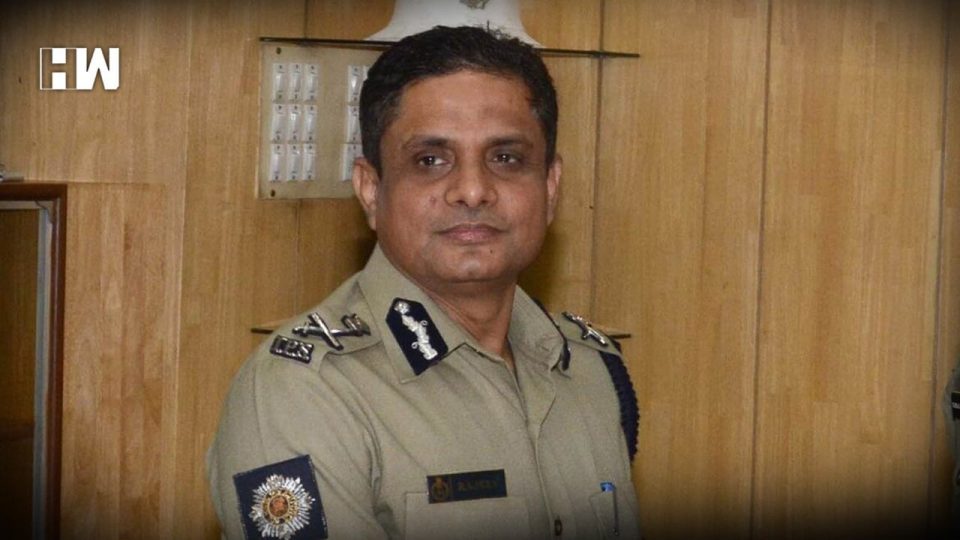New Delhi | Former Kolkata Police Commissioner Rajeev Kumar on Friday failed to get any relief from the Supreme Court which declined to entertain his petition seeking extension of protection from arrest in the multi-crore Saradha chit fund scam.
He was granted protection from arrest on May 17 by the apex court for seven days which was ending today and he had filed a fresh petition seeking to restrain the CBI from taking any coercive action against him.
However, a vacation bench headed by Justice Arun Mishra said Kumar’s plea was not “maintainable” as a bench headed by Chief Justice of India Ranjan Gogoi had already passed an order in the matter on May 17 and the IPS officer should not have filed a fresh writ petition.
The bench, also comprising Justices B R Gavai and Surya Kant, said that Kumar can personally approach the Calcutta High Court or the trial court there for seeking relief in the case.
“A petition under Article 32 of the Constitution of India cannot be said to be maintainable as the petitioner (Kumar) has also filed an application for extension of time before this court,” the bench said in its order.
At the outset, the bench told Kumar’s counsel that a bench headed by the CJI had already passed an order in the matter and later the CJI had also declined the urgent listing of an application filed by the IPS officer seeking extension of protection from arrest.
“Is it maintainable (the writ petition)? You can go to the high court or the trial court as the courts are functional there,” the bench told advocate Sunil Fernandes, who was representing Kumar.
When Fernandes said that courts in Kolkata are not functioning due to ongoing lawyers’ strike, the bench said, “You are wrong. The courts are sitting there. All judges are sitting in courts and they are hearing the litigants.”
“Your client (Kumar) is a former commissioner of police and he knows the law better than many young lawyers. He can personally go to courts there,” the bench said.
Fernandes told the bench that they will approach the CJI but the problem was that protection from arrest granted to Kumar is expiring today.
“What can be done? Do we have the jurisdiction to hear this? Your problem may be anything but your petition under Article 32 is not maintainable,” the bench said.
“You have already moved an application for extension of protection before the CJI. Do you want a harsh comment from us? It is not proper for you to file the petition and then request for urgent listing when the CJI had already declined the urgent listing of your application. Don’t misuse our generosity like this,” the bench told Fernandes, adding that the matter was wrongly listed before it.
The bench told Kumar’s counsel, “Better you withdraw this. You have lots of forum available”.
The bench noted in its order that it is open for Kumar to approach the concerned court “as the courts in the state of West Bengal are functioning, appear in person and seek the remedy before the concerned court.”
On May 17, a three-judge bench headed by the CJI had withdrawn protection from arrest granted to Kumar by its February 5 order.
However, the court had said his protection would continue for seven days from May 17 to enable him to approach the competent court for relief.
On May 20, Kumar had moved the apex court seeking an extension of the seven-day protection granted in view of lawyers’ strike in Kolkata.
However, the court had said since the May 17 order was passed by a three-judge bench, Kumar’s counsel can approach the apex court registry or the secretary general for the listing of the matter before an appropriate bench.
In its May 17 order, the top court had also expressed concern over the confrontation between the CBI and the West Bengal Police in the case, saying “at the receiving end are silently waiting for lakhs of small town and rural investors who have been deprived and looted of their savings”.
The court had also noted that the West Bengal government and Kumar have alleged “political vendetta” and have made allegations against M Nageswara Rao, a former interim CBI director.
Earlier, Kumar in an affidavit before the court had alleged that he was targeted by the CBI in the chit fund case due to “mala fide intent” and “conflict of interest” of Rao as his family members were under the scanner post-demonetisation.
As an independent media platform, we do not take advertisements from governments and corporate houses. It is you, our readers, who have supported us on our journey to do honest and unbiased journalism. Please contribute, so that we can continue to do the same in future.

